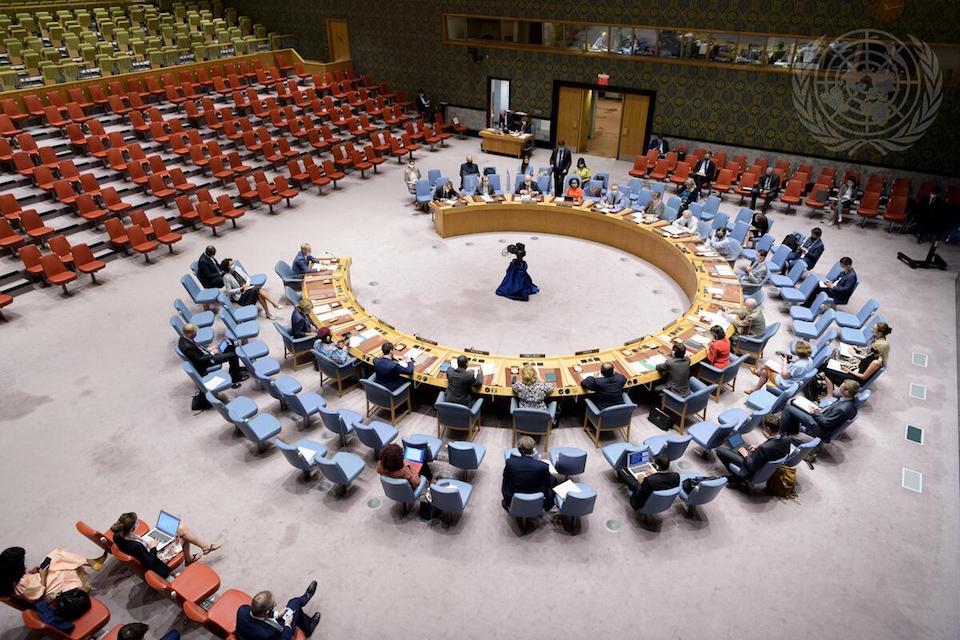‘It is time to put the interests of Ethiopian people first’
Statement by Lord Ahmad of Wimbledon, UK Minister of State for the UN, at the Security Council briefing on the situation in Ethiopia

I would like begin by thanking Under-Secretary DiCarlo and Acting Under-Secretary Ramesh Rajasingham for their expert insights and briefings today.
Today is an important opportunity. It is right that this Security Council considers how to help end this devastating conflict and support all of the people of Ethiopia.
I shall not repeat the picture of suffering outlined by our briefers. It is stark. It is real. But after eight months of conflict, we remain deeply concerned by all that we have heard and that we are seeing.
Instead, I want to make three brief points: on the immediate humanitarian situation, the need for conflict resolution and in addressing human rights concerns, so that Ethiopia can move on from this most tragic of conflicts.
But before I go any further, I want to pay tribute up front to the twelve humanitarian workers – and I’m sure I speak for every member of this Council – who have been killed since this conflict began. Protection of humanitarian workers, of their offices, of their equipment, is a central tenet of international humanitarian law.
Their work is especially vital in Tigray where, as OCHA have outlined today, and as the IPC data shows, at least 353,000 people are now in famine conditions.
People have died from hunger. People are dying from hunger. People will continue to die unless they get the help they need and get the help they need now. This is a man-made famine and we need to act.
In this regard, the United Kingdom welcomes the unilateral ceasefire declared by the Government of Ethiopia.
All sides – the Federal Government of Ethiopia, Tigray Defence Forces, Amhara militias and Eritrean Defence Forces – have an opportunity to end the cycle of violence and suffering.
We urge them to take it. And we call on Eritrean forces to withdraw, as requested by the Ethiopian government.
Our immediate priority has to be for humanitarian assistance to get through to those that require it. The restoration of basic infrastructure, including electricity, communications and banking services and ensuring food and other needed goods can reach Tigray. It is essential to prevent further loss of life.
Enabling humanitarian agencies to get visas for their staff and import communications equipment so they can operate effectively is imperative. Indeed we’ve heard that today. Denial of humanitarian access is a direct violation of international humanitarian law.
At the same time, we, the international community, and UN agencies must be ready to respond.
The response to date has frankly been insufficient. The ceasefire gives us the opportunity to address this and urgently increase the amount of aid reaching the starving people of Tigray. And in this regard the United Kingdom has already allocated £47.7 million.
A full and sustained ceasefire will give all parties time and space to address the root causes of this conflict through both dialogue and reconciliation and for an inclusive political process to be initiated.
The United Kingdom welcomes and endorses African Union Commission Chairperson Faki’s call for all parties to uphold their responsibilities under international law to protect civilians.
He is of course right that a comprehensive and all-encompassing permanent ceasefire is absolutely necessary to pave the way for sustainable peace in Tigray.
We will support the African Union in its efforts in pursuit of peace and stability in Tigray, Ethiopia, and, indeed, the wider region. And we encourage the United Nations system to consider how it can also assist as the situation develops, as part of a very much joined-up process and coherent strategy.
Finally, Mr President, Special Representative Patten and High Commissioner Bachelet have highlighted serious allegations of human rights abuses and violations. They also described systematic sexual violence which, as the United Kingdom Prime Minister’s Special Representative on Preventing Sexual Violence in Conflict, I have been particularly moved by.
The United Kingdom is supporting the ICRC and UN agencies to provide essential services to survivors of sexual violence and an extra £16.7 million of funds we announced in June will support and drive towards accountability.
And this week, Mr President, we have additionally deployed an expert to advise on support for the safe collection – and this is vital, this is imperative – for the safe collection and preservation of evidence, in order to bring the perpetrators of sexual violence to justice at the appropriate time.
The United Kingdom welcomes the proposed inquiry of the African Commission for Human and People’s Rights and it fully supports the ongoing Joint Investigation between the UN Office for the High Commissioner for Human Rights and the Ethiopian Human Rights Commission. We will also co-sponsor a resolution on Tigray at the Human Rights Council in Geneva this month.
Mr President, transparency and accountability will be vital if Ethiopia is truly to move past this tragic conflict. We collectively owe this to the victims. We owe it to the survivors.
Our message is clear: it is time for all sides to put down their weapons; it is time to allow unrestricted access for humanitarian aid; and it is time to put now the interests of Ethiopian people first.
I hope this Council can now work constructively, with the African Union and partners, to ensure progress on these most critical of issues and turn around the situation for the sake of the people of Tigray and the sake of all Ethiopians.
Thank you, Mr President.